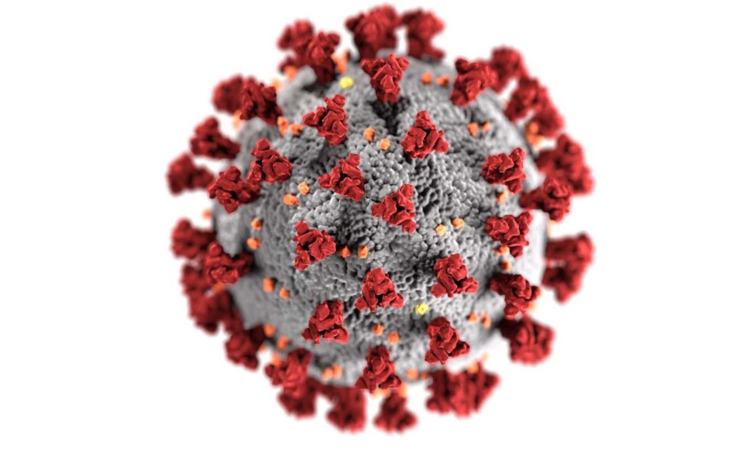Statement on the ninth meeting of the International Health Regulations (2005) Emergency Committee regarding the … – World Health Organization

The ninth meeting of the Emergency Committee convened by the WHO Director-General under the International Health Regulations (2005) (IHR) regarding the coronavirus disease (COVID-19) pandemic took place on Friday 22 October 2021 from 13:00 to 17:05 Geneva time (CEST).
Members and Advisors of the Emergency Committee were convened by videoconference.
The Director-General welcomed the Committee and thanked its members and advisers for their support and guidance throughout the COVID-19 pandemic. He highlighted the importance of the Committee’s work considering the ongoing challenges posed by the COVID-19 pandemic. The Director-General emphasized that a tailored risk-based approach of vaccination in conjunction with appropriate public health and social measures (PHSM) is needed and reiterated the global call for action to scale up vaccination to achieve 40% coverage for every country’s population by the end of 2021.
Representatives of the Office of Legal Counsel (LEG) and the Department of Compliance, Risk Management, and Ethics (CRE) briefed the members on their roles and responsibilities. The Ethics Officer from CRE provided the members and advisers with an overview of the WHO Declaration of Interests process. The members and advisers were made aware of their individual responsibility to disclose to WHO, in a timely manner, any interests of a personal, professional, financial, intellectual or commercial nature that may give rise to a perceived or direct conflict of interest. They were additionally reminded of their duty to maintain the confidentiality of the meeting discussions and the work of the Committee. Each member who was present was surveyed. Two members reported changes in their professional responsibilities since the last meeting, but their new roles were assessed and not considered to generate a conflict of interest. One adviser has been appointed to WHO and will no longer participate in the Committee in his former capacity. As such, no conflicts of interest were identified.
The Secretariat turned the meeting over to the Chair, Professor Didier Houssin. Professor Houssin reviewed the objectives and agenda of the meeting.
The Secretariat presented updates on:
The Committee discussed key issues including:
The Committee expressed concerns over the challenges faced by the African Region in responding to the COVID-19 pandemic, including accessing sufficient vaccines, diagnostics, and therapeutics, as well as collecting, analysing, and reporting epidemiological and quality laboratory data, including genomic sequencing data, required to monitor the evolution of the COVID-19 pandemic. The Committee urged for adequate resourcing, capacity building, and technical support for the Region and its Member States to strengthen their surveillance and response efforts.
The Committee thanked WHO for its leadership in coordinating the global COVID-19 pandemic response and for its continued effort and support to States Parties in reporting on implementation of the Temporary Recommendations. The Committee highlighted the need for WHO Headquarters, Regional Offices, and Country Offices to continue supporting States Parties in implementing and reporting on Temporary Recommendations.
The Committee recognized the value of WHO’s continued coordination of short, medium, and long-term research agendas to address knowledge gaps and to respond to the evolving pandemic. Further research is needed on One Health aspects of SARS-CoV-2, tools and medical devices (such as reusable masks and respirators), and next generation vaccines, diagnostics, and therapeutics for long-term control of the pandemic. In addition, research is needed to understand the attributable impact of individual and combined PHSM in the evolving pandemic context, including aspects related to variants, host immunity from natural infection, and vaccine-derived immunity.
The Committee underlined that, while progress has been made through increased uptake of COVID-19 vaccines and therapeutics, analysis of the present situation and forecasting models indicate that the pandemic is far from finished. The Committee emphasized that there is a critical need for States Parties to continue using all available tools including PHSM, vaccination, diagnostics, therapeutics, and effective communications to control the pandemic and mitigate its negative impacts on health as well as social-economic and educational contexts. In addition, the Committee recognized that the protracted nature of the COVID-19 pandemic poses an additional burden in the context of complex humanitarian emergencies, mass migration, population displacement, and other crises. As such, the Committee suggested States Parties consider revising their preparedness and response plans and assistance policies to account for these interdependencies.
The Committee unanimously agreed that the COVID-19 pandemic still constitutes an extraordinary event that continues to adversely affect the health of populations around the world, poses a risk of international spread and interference with international traffic, and requires a coordinated international response. As such, the Committee concurred that the COVID-19 pandemic remains a public health emergency of international concern (PHEIC) and offered its advice to the Director-General.
The Director-General determined that the COVID-19 pandemic continues to constitute a PHEIC. He accepted the advice of the Committee and issued the Committee’s advice to States Parties as Temporary Recommendations under the IHR.
The Emergency Committee will be reconvened within three months or earlier, at the discretion of the Director-General. The Director-General thanked the Committee for its work.
While the Committee noted that there are nuances associated with diverse regional contexts related to the implementation of the Temporary Recommendations, they identified the following as critical for all countries:
Related
News







